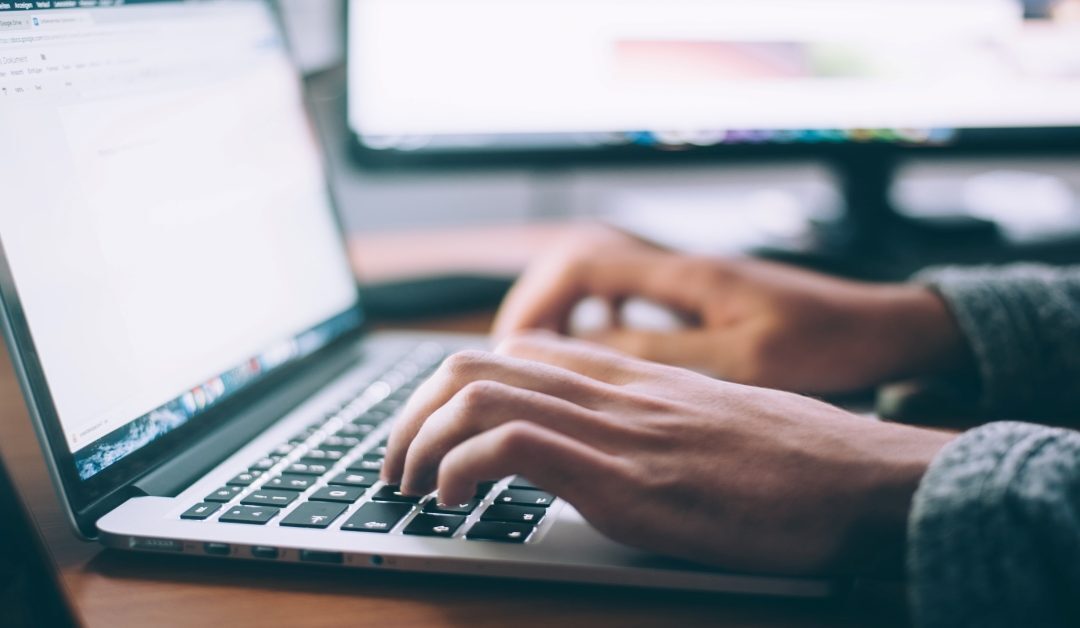Like the adaptive creatures we are, we're already finding creative ways to connect to one another.
Are your habits changing for the better?

Call your parents! Your siblings! Your friends! That is, if they haven’t already FaceTimed or Zoomed you while you try to work remotely. You know, “just to talk.”
With widespread access to convenient technology and empty social calendars, it is easier than ever for most of us to catch up with one another (and harder to make excuses for not doing it).
New virtual opportunities to have face-to-face connections with our nearest and dearest seem like a significant source of hope while we’re forced out of our routines and we’re physically separated, but are there also reasons to be anxious about relying primarily on technology for our social connections?
Something good is happening in the digital “here”
Like the adaptive creatures we are, we’re already finding creative ways to connect to one another.
Our new travel limitations force us to ask hard questions about what we’re doing in the digital “here.” The answers may lead to more value in the interactions we have with one another. Andrew Hanauer, president of the One America Movement, encourages us to use this time to bridge divides and make our communities stronger by turning the current challenge into an opportunity:
Imagine if we filled the internet with love, hope and goodness; if we ordered groceries for our neighbors; or for people living on the other side of town. Imagine if we check on each other by phone or online to make sure people who live alone are feeling OK, both emotionally and physically.
Last week, our team held two virtual Civil Squared Live discussions with people across the country. We discussed the impact of technology on our conversations and connections. Participants shared encouraging stories about how they were changing their online habits (for the better!) and how virtual work had given them new perspectives on connections to colleagues.
But the smiles don’t seem to be as big
While we may gain new meaning and connections through creative uses of technology, what are we losing? A number of participants in our virtual discussions observed that it feels like polarization may be getting worse, not better. Forced into isolation, we may end up increasing our animosity towards those who aren’t like us and use technology to filter our differing viewpoints.
As we keep six feet of distance between one another, we’re also missing out on many of the subtle interactions that constitute civility. Well before the coronavirus separated us, there were good reasons to worry that the efficiency technology offers also robs us of small, but important human interactions (like shopping for our own avocados or standing alongside our neighbors and catching up on their lives).
A month ago, most people I passed on walks through my neighborhood smiled and waved, whether we knew each other or not. Today, the smiles aren’t as big and, as we move to the other side of the street to give each other space, we’re all looking at each other a little suspiciously.
I can get online and see my colleagues and we can keep working to encourage civil discourse and independent thinking. I’m grateful for the technology that makes this possible. But I’m really worried about the interactions I’m getting in the habit of not having.
Where do we go from here?
Physical (but hopefully not social) distancing presents challenges to us all. I’m optimistic that we’ll continue to hear good news of innovation that results from this situation.
When the current crisis abates, we’ll need to examine the new habits of communication and interaction we’ve developed. Will we still be disconnected, despite being able to return to physical proximity with one another? How can we avoid that?
At Civil Squared, we’ll continue to be a resource to help keep your world open, even as your ability to move about it is restricted. Join us next week, on Thursday, April 9th at 7:30 pm (EDT) for a Civil Squared Live online event. We will “Ask an Economist” to help us consider how we set ourselves up for economic, as well as physical recovery from the COVID-19 pandemic. You’ll find more detail below!
Our entire team wishes you good health and safety in your homes!
5 more links worth your time
- [Online Event] Civil Squared Live: Ask an Economist – COVID-19 and Economic Trade-Offs – Join us online on Thursday, April 9th at 7:30 pm (EDT) for a live discussion with economist Dr. Lynne Kiesling, Co-Director of the Institute for Regulatory Law & Economics at Carnegie Mellon University. We’ll consider how to weigh the trade-offs we make between public health and economic health. Bring your questions!
- The Coronavirus Could Cause a Social Recession, The Atlantic – Former U.S. Surgeon general Viviek Murthy weighs in on the detrimental health effects of “social recession.”
- Screens Might Be as Bad for Mental Health as…Potatoes, WIRED – Psychologists are updating the way they study the effects of technology on human well-being.
- Social media should be a complement to real life. Not a substitute., The Washington Post – As we increasingly rely on social media to stay connected, could there be downsides?
- Coronavirus will also cause a loneliness epidemic, Vox – Ezra Klein suggests that the “social recession” of the current crisis is “inevitable” but that the damaging effects could be mitigated by technology.
p.s. If you’ve got a political, ideological, or philosophical issue you’ve been considering, email me at jennifer@civilsquared.org and I’ll work with my team to put together a list of articles, issues, and interesting points of view to share with you and others.